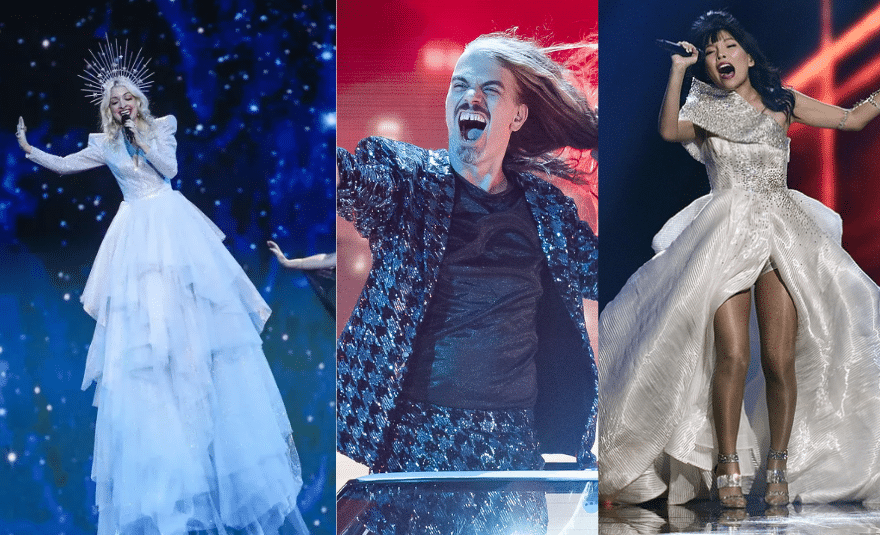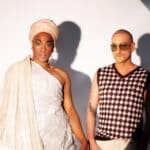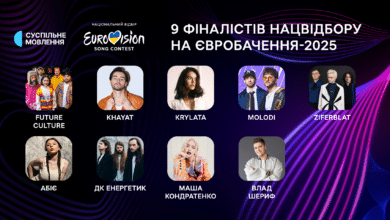Why has Australia been taking part in Eurovision since 2015? We tell you all about this surprising tradition!
Australia's participation in Eurovision has become almost a tradition since its introduction in 2015. And regularly, we hear, here and there: "why does Australia participates to Eurovision, IT'S NOT AN EUROPEAN COUNTRYYY!!" - thank you capt'ain obvious. So what's a country so far away from Europe doing in a competition that's » supposed to be European? It's an interesting story, and shows just how far music extends beyond geographical borders.

Which countries can compete in Eurovision?
Only member countries of the European Broadcasting Union (EBU ») can take part in the Eurovision Song Contest. EBU members include virtually all European broadcasters (the BBC for the UK, France Télévisions for France, etc.), in fact all broadcasters located in the "» European Broadcasting Area" defined by the ITU (International Telecommunication Union), which extends far beyond European borders to include broadcasters in Algeria, Azerbaijan, Israel, etc.
The EBU also includes so-called » affiliate members such as NHK in Japan, SMG in China and ABC and SBS, two broadcasters in Australia. Today, the EBU has 68 members in 56 countries and 31 affiliates in 20 countries. All these countries could, on paper, compete in Eurovision with ». And some are already doing so: Israel, Australia, etc.
1983: The beginning of a love affair between Eurovision and Australia
The love affair between Eurovision and Australia began in 1983. One of the public television channels, SBS, decided to broadcast the Eurovision contest while it was taking place in Munich. It was a delayed broadcast from the BBC because of the time difference, but it quickly developed into a real tradition for many families and groups of friends across the country.
In 2001, Australia sent commentators from national television to cover the event in Copenhagen. And in 2014, Australian singer Jessica Mauboy even had the honour of performing during the interval. SBS even organises its own televote (which does not count towards the official competition, of course).
In short, it's clear from the very first years that the Australian public is attracted to this competition...
2015, when Australia pulls out all the stops for Eurovision
The real turning point came in 2015, at the 60th edition of the competition. The EBU decided to officially invite Australia to take part in the final. The Australians were to broadcast the three evenings of the competition live, despite a significant time difference. And... it worked! " Tonight Again » from Guy Sebastian placed 5th with 196 points. Enough to make many official EBU Members jealous. The audience was very good and made the broadcaster want to continue the experiment!
Since then, Australia has become a regular participant in Eurovision, although it now has to go through the semi-finals to qualify. This involvement was made possible by a special invitation from the EBU, although Australian broadcaster SBS is not an EBU member (although it is affiliated, as has been said).
Australia, a serious contender on the Eurovision stage
Australia is not doing things by halves, to say the least. Although the country has yet to win, it is regularly at the top of the scoreboard. They came close with Dami Im in 2016" with "Sound of Silence », which scored 511 points to come second, just behind the Ukrainian candidate Jamala. It's also one of those tracks where the studio version seems bland, but the live performance was so good. Judge for yourself.
Australia is also to thank for a particularly successful and unique production in 2019 with "Gravity ». Kate Miller-Heidke sings, perched 3 metres up on a swinging bar.
We also really liked the band Travel in 2023, with its very 80s title 'Promise »'.
We're keeping our fingers crossed that Australia's Eurovision adventure will continue to amaze us with its unique musical performances and infectious spirit of celebration.
Australia at Eurovision

Australie
Win(s)
Last win
Entries
| Year | Artist | Song | Points | Ranking |
|---|---|---|---|---|
| 2025 | Milkshake Man | - | - | |
| 2024 | One Milkali (One Blood) | - | - | |
| 2023 | Promise | 151 | 9 | |
| 2022 | Not The Same | 125 | 15 | |
| 2021 | Technicolour | - | - | |
| (2020) | Don't Break Me | - | - | |
| 2019 | Zero Gravity | 284 | 9 | |
| 2018 | We Got Love | 99 | 20 | |
| 2017 | Don't Come Easy | 173 | 9 | |
| 2017 | Don't Come Easy | 173 | 9 | |
| 2016 | Sound of Silence | 511 | 2 | |
| 2015 | Tonight Again | 196 | 5 |
















